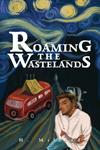 |
|
Is it just me or has anyone else noticed that lately there seem to be more and more columns on race and genes in the mainstream press written by people from the "other side," that are very similar in tone and content to what many of us on our side have been writing for years?
Of course, when the folks from the other side write what we've written many times before, they usually don't have their words taken out of context to be used in smears by various phony anti-hate organizations that need demons in order to scare old cat ladies and other neurotics into donating to their organizations.
Last month, the Los Angeles Times ran a column by Joel Stein entitled "Finally, Some Prime-Time Racism" which was about the new "racist Survivor." In his tongue in cheek column, Stein said he had planned on "rooting for whitey," but, then, after watching an episode, he decided that the Asians on the show were more like Stein and his fellow Jews in their attitudes and personalities than the whites on the show. Stein also wrote that none of his white friends wanted to watch the show with him, "because--although it was fine for the other races--they felt it was unbecoming for Caucasian Americans to root for their own kind."
Truth be told, Stein hit most of the stereotypes right on the head with his column. A discriminating (hold on to that word "discriminating") reader understands--no matter what squishy PC types want them to believe--that stereotypes often exist because they do pretty much give a thumbnail sketch of identifiable characteristics of various distinct peoples.
I wondered when I read Stein's column if the Times would publish any letters from the usual PC types who want to deny the reality of nature about race and genes and who would take issue with Stein's take on things.
I didn't have to wait long. A couple of days after Stein's column appeared, there was a letter in the paper from a woman who wrote that while she thought it was "a good thing to bring this taboo [race] into conversations,"(Don't you know, dearie?) that Stein was "wrong to suggest that race is a biological reality such as gender and age. Race is a social construction."
Oh, good grief! No it's not. Race is a reality. Race is to humans what breed is to dogs. Geez. First this woman writes that it's a good thing to bring race into conversations and then she says race is not a reality. This has the usual PC effect of stopping any intelligent conversation about the subject.
A stereotype suddenly comes unbidden and presents a picture (whether it's close or not, I don't know), of a muumuu wearing, middle-aged, overweight, Great White Mother with stringy gray hair and no makeup who often takes part in candle light walks against racism where the mostly white noblesse oblige racist participants bemoan white racism in order to give positive reinforcement to blacks and other non-whites so the inner white people will emerge.
Stein ended his column with this further tongue in cheek take on race: "If we're going to survive, we really need to band together against the yellow people." Well, our lady letter writer didn't much like that, by golly, and she wrote: "Unfortunately, there are many who seriously take on this attitude at a time when the world needs more examples of how people can apply their skills and ingenuity toward the survival of all." Oh, friggin' ho hum. Can't we all get along?
So, what's really wrong with what this woman wrote? Wouldn't the world be better if we all just got along? The answer is that, ultimately, what she wrote is anti-nature and anti-evolution. Let me try to explain with terms that are more cosmic in nature. Some may get it, some may not. At any rate, there is, I maintain, an eternal struggle that everything in existence is part of. The very act of existing requires struggle. And, the struggle does not just involve life. Life is just part of it. Everything in existence struggles to exist. This is so because all of existence is in a soup bowl full of various forces, energies and things that are all intermingling with one another and which seek their own existence and which are all moving and eternally spinning and circling.
Now, don't make the mistake of thinking that the word "struggle" necessarily means that there is a consciousness or intelligence behind the concept. There can be, but it's not necessary in the larger sense. I use the term here to mean that everything that exists "wants" to continue to exist and to be in as "comfortable" a situation as possible. Finding that comfort often requires effort and the expending of energy of some type. This sets up conflicts and causes the struggles to overcome whatever is blocking the way to that comfortable situation.
As I've written before, even when you leisurely stroll across a lawn you're involved in all sorts of conflicts and struggles. You struggle against the air that you're passing through and it struggles against you. You struggle against the grass and it struggles against you. Same with the insects, same with the dirt underfoot, same with everything else that is disturbed or has the possibility of being disturbed by your walk. Your simple act of walking sets up conflicts and struggles.
Too abstruse? If so, take it down some notches and switch to human life. We are full of genes. They are us. They want to exist and be comfortable. We help them do that by surviving and by making more of them. But, there are other genes that have the same functions and occupy the same niches. These other genes also want to exist and be comfortable. If you have, say, blond hair, that's a result of your blond hair genes that have struggled to exist and won against other hair color genes, at least in you. But there are genes for various other shades and colors of hair, and they want to exist also.
The genes that generally will win will be those that are found in the greatest numbers in the gene pool. So, if a gene pool is full of blond hair genes, the likelihood of those genes dominating and surviving will be high. But, if that blond hair gene pool is suddenly invaded by black hair genes, the likelihood is that mating choices will develop that will produce fewer blond haired and more black haired offspring and more black haired genes. In other words, the blond haired genes will die out and the black haired genes will prosper and dominate.
I told you to hold on to that word "discriminating," because now we come to a column by Walter Williams. As with the column by Stein, this one by Williams--"What is discrimination?"-- is in the same category as many of the columns written by some of those on our side of things; it discusses race and genes in honest terms. Of course, Williams, like Stein, gets something of a pass by the professional hate hunters because of well, oh, you know--they discriminate.
Williams correctly points out that discrimination is simply choice. For example, we choose this wine over that wine. That's discrimination. He then goes on to say that "sometimes students will argue that certain forms of discrimination are OK but it's racial discrimination that's truly offensive."
Of course, dear reader, you realize how predictable and sophomoric that attitude is in this day when so much energy is expended to propagandize the population to believe that race and genes aren't important. Anyway, Williams then punctures that argument and tells readers that he, a black man, selected a black woman as his mate and that he discriminated against other race women and "gave them no chance whatsoever." He then correctly points out how mating like with like tends to heighten whatever group differences exist in the population. Thus, high I.Q. people tend to marry other high I.Q. people, high income people tend to marry others with high incomes, and so on. And, if there is a racial correlation in these things, then we are likely to see differences in the society's intelligence and income distribution along racial lines.
Williams then asks what sort of discrimination should be permitted in society. His answer is the same one that most of us on our side of things say is the right one: "[T]he answer depends on one's values for freedom of association, keeping in mind freedom of association implies freedom not to associate."
What is true and real is true and real no matter who writes it or who denies it.
|
|
# # # |
|
THREE BOOKS BY HARD TO PIGEONHOLE H. MILLARD All three books are now listed on Amazon.com. The lefties at the OC WEEKLY said Millard is one of OC's most frightening people. "Millard is an important writer" New Nation News |
 |
Ourselves Alone & Homeless Jack's Religion |
 |
ROAMING THE WASTELANDS |
 |
THE OUTSIDER - (ISBN: 0-595-19424-9) |
| Views expressed by guest columnists, reporters and external links not necessarily those of the editor of New Nation News but hopefully of some interest |